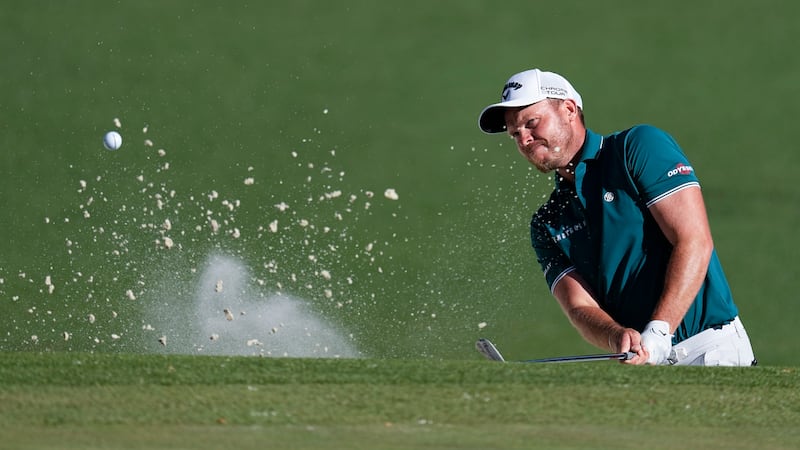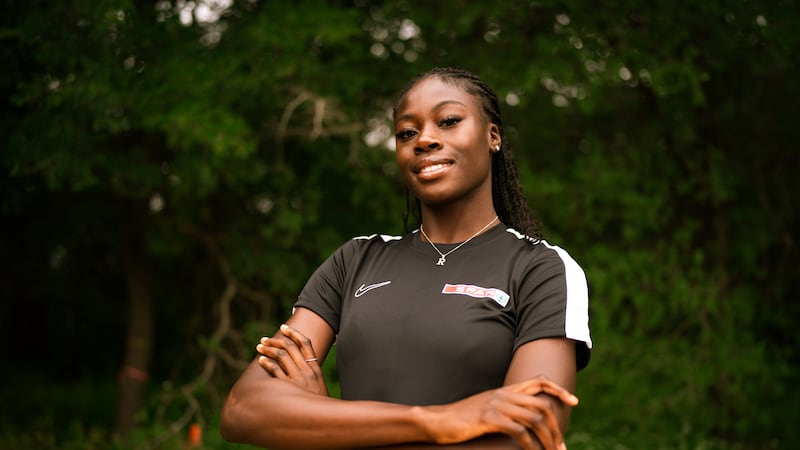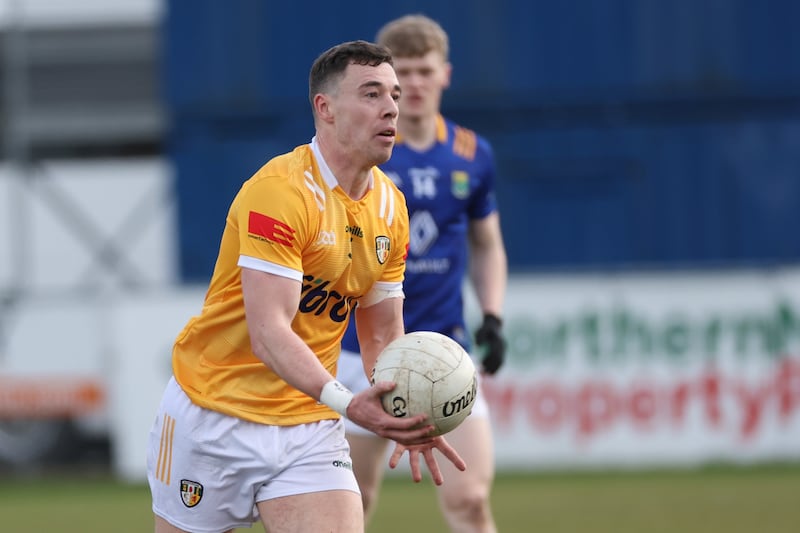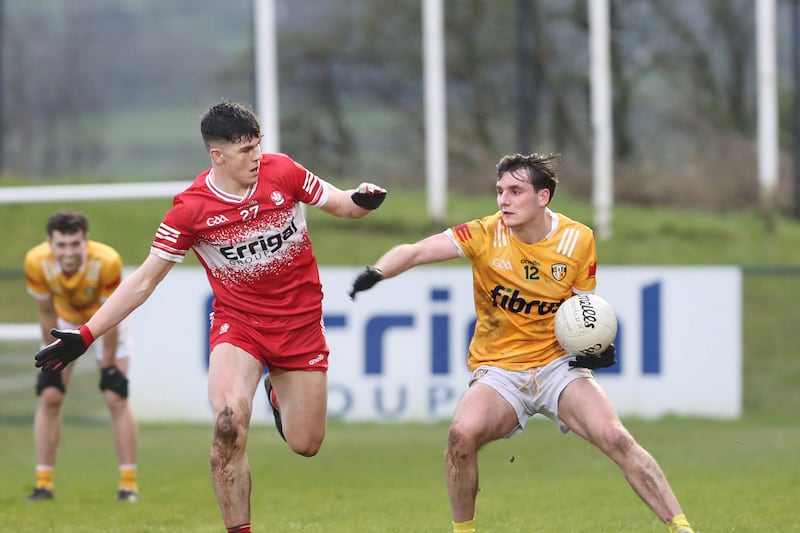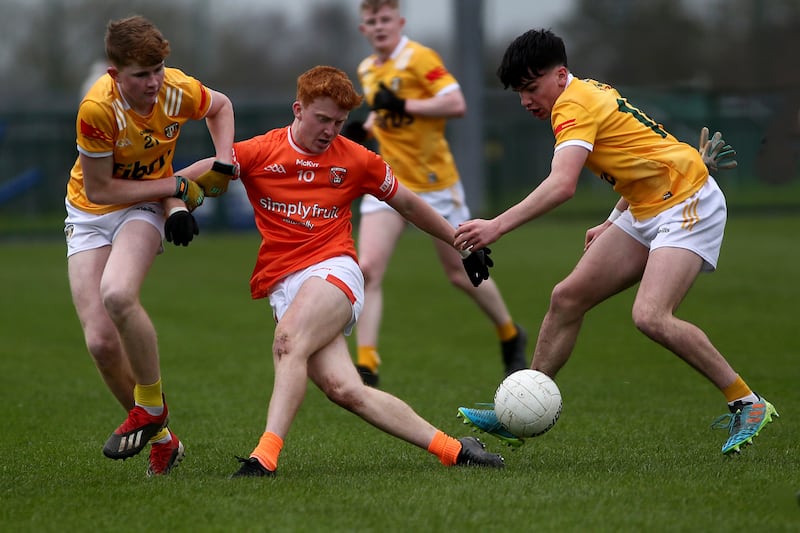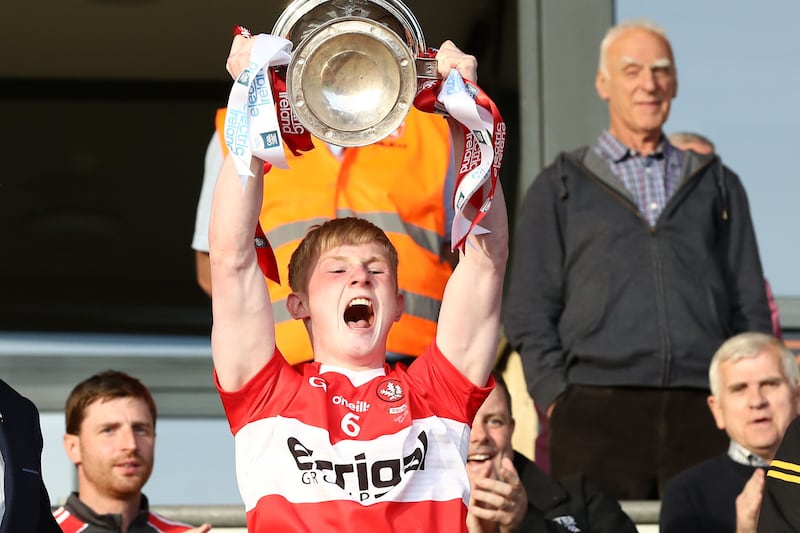THIS time last year, it was pretty simple. You could make a judgment on the satisfaction or otherwise in Ulster’s hurling counties by looking at the province’s trophy cabinet.
Seven of the eight 2021 League and Championship finals that could feature Ulster representation did, and five of the cups up for grabs came north.
In 2021, it was more complicated, with League finals shelved, although champions were still decided and Ulster didn’t provide any of them. When it came to the Championship, Fermanagh’s were the only colours added to national silverware.
But for all that, more than just the Ernemen will head into 2022 satisfied with at least some of their work the previous year.
If Antrim had gotten even remotely close to bringing home a cup in 2021 it would have been the hurling shock of generations.
Moving up a level in both League and Championship meant progress was more likely to be measured in performance and survival. On both fronts the League was a resounding success, with the Championship a resounding failure.
The last time Antrim were in Division One, in 2018, they didn’t perform badly, but were relegated because they only won match – on the final day against Offaly – and lost the one that really mattered, against Laois, which gave the O’Moore men the head-to-head advantage.
This time Darren Gleeson’s side turned the performances into the hard currency of points, beating Clare and drawing with Wexford to render the last-day clash with Laois, circled as the one they’d probably need to win to assure safety, moot. They also gave eventual joint-champions Kilkenny everything they could cope with at Nowlan Park and beat Laois in that dead rubber for good measure.
So they headed into their Leinster Championship meeting with Dublin in form and on a high, but their other Division One match, the only one they didn’t perform in, didn’t bode well. Dublin had dominated them at Parnell Park, physically and in pure hurling terms, and Antrim had goalkeeper Ryan Elliott to thank for the final margin being only eight points.
When the counties met again in Navan in the Championship, the scoreboard was a fairer reflection of the gulf between the sides. Dublin scored three goals and won by 18 points. Antrim couldn’t cope with a seasoned Championship side and found themselves in a relegation play-off against Laois, who had suffered a similar hiding to Antrim’s in their Leinster clash with Wexford.
Just as staying in Division One, and securing matches this season against Kilkenny, Tipperary, Waterford, Dublin and Laois is a vital factor in Antrim’s immediate development, so was staying in a Leinster Championship that will revert to its round robin format of intense competition next year.
But a mistake-riddled performance against Laois leaves Antrim on the outside looking in from the vantage point of the Joe McDonagh Cup.
An immediate bounce back is far from guaranteed, or even likely, with a rejuvenated Offaly back in the second tier of the Championship, as well as the other Division One group, although the fixture makers have been kind, giving Antrim home clashes with arguably their three biggest challengers – Offaly, Carlow and Kerry. That’s important when you look at Antrim’s record in 2021 when they won two and drew one of their three matches at Corrigan Park and lost all four games they played outside the county.
Down will join them in the McDonagh Cup and manager Ronan Sheehan has already made it clear their goal for the Championship season is to simply remain in the second tier. That’s despite them being just a point – as in a ball over the bar – from making the decider last year. Padraig Boyle raised a white flag for Kerry in the seventh minute of injury-time in their four-point defeat to Meath when a five-point defeat would have seen Down go through.
That came after a fine League campaign for Down their first in Division 2A since 2012 when there was nothing between them, Kerry and Carlow as the chasers (well) behind Offaly.
With Kildare up from Division 2B and Westmeath down from Division One, the margins are likely to be even tighter in the coming season. Kildare cruised through Division 2B, the most dominant team in the entire League with an average margin of victory of just under 20 points. Both Derry and Donegal found themselves on the wrong end of heavy losses, though both also comfortably maintained their League status. When the Championship came round, Dominic McKinley and Cormac Donnelly’s Oak Leafers knew they faced an enormous, Offaly-shaped mountain to climb, and that’s the way it turned out. Derry beat Roscommon, Wicklow and Sligo before the Faithful pulled them apart in the Croke Park final. This year’s competition appears more winnable, though Kildare, buoyed by impressive underage displays, will be the hill they’ll need to climb this time.
There was always going to be some Ulster joy at Croke Park on Ring/Rackard/Meagher finals day when Fermanagh took on Cavan in the Lory Meagher decider, 12 months after losing the final to Louth at the same stage.
Cavan, whose progression since re-entering senior inter-county competition in 2017 after a six-year absence is one of the sport’s good news stories, went into the match confident having recorded two wins and two draws in the counties’ previous four meetings, but Fermanagh’s big-game experience showed as they cruised to a 15-point win.
Donegal couldn’t retain their Nickey Rackard Cup title, with Tyrone emerging as the pick of the three Ulster teams in that competition, beating both the holders and Armagh on their way to the final against Mayo. They they lost handily, but it shouldn’t mask the steps forward the Red Hands made under Slaughtneil boss Michael McShane in 2021.
If, as one year ends and the next begins, satisfaction levels are indeed the barometer for hurling success in Ulster, then you’d probably be wasting your time to look past McShane and his Slaughtneil machine.
They began 2020 by producing a performance that came within a few bounces of toppling Ballyhale in the All-Ireland semi-final, but ended it as a caged animal, Derry champions for the eight time in-a-row, but unable to defend their Ulster title.
The vacuum was filled with questions about what might have happened if Antrim’s impressive young champions Dunloy, a year matured since losing to Slaughtneil in the 2019 provincial decider, had challenged them for their crown.
Slaughtneil waited a year to give the answer as they showed why they’re this generation’s standard bearers in Ulster club hurling. First Dunloy, then Ballycran couldn’t deal with them.
Next it’s an All-Ireland semi-final against Kilmallock or Ballygunner. And as pleased as Slaughtneil will be about showing Ulster who’s boss, it’s obvious that until they take the next step and make a winning impression on the national stage the Emmet’s won’t be fully satisfied.
